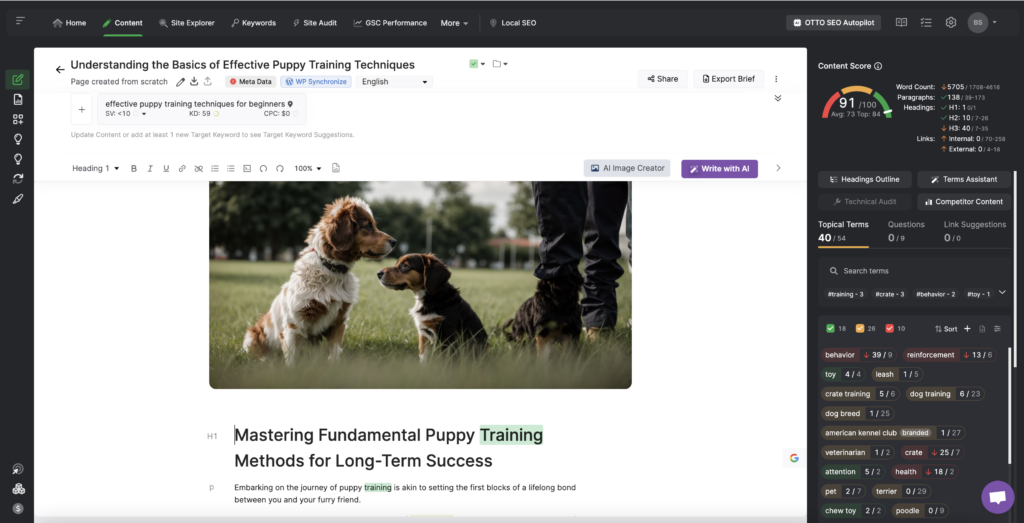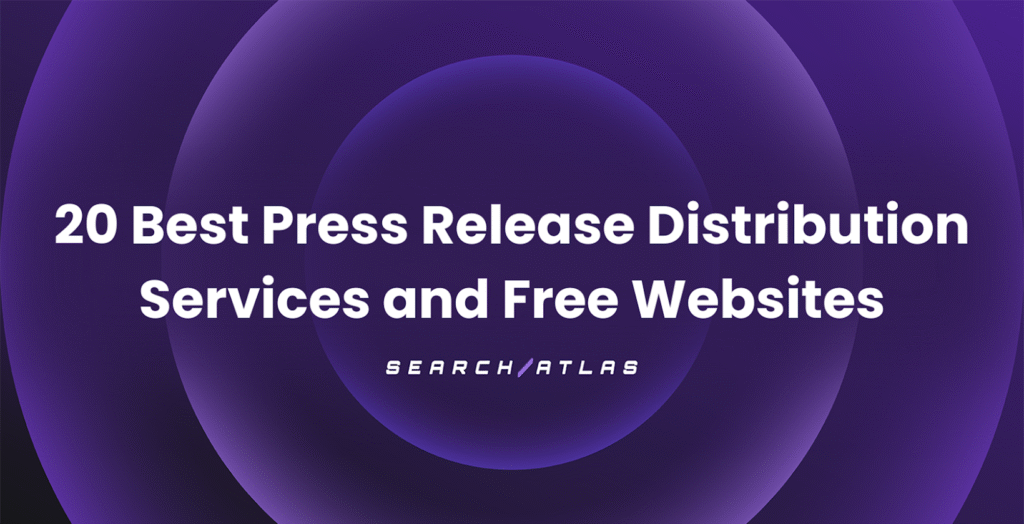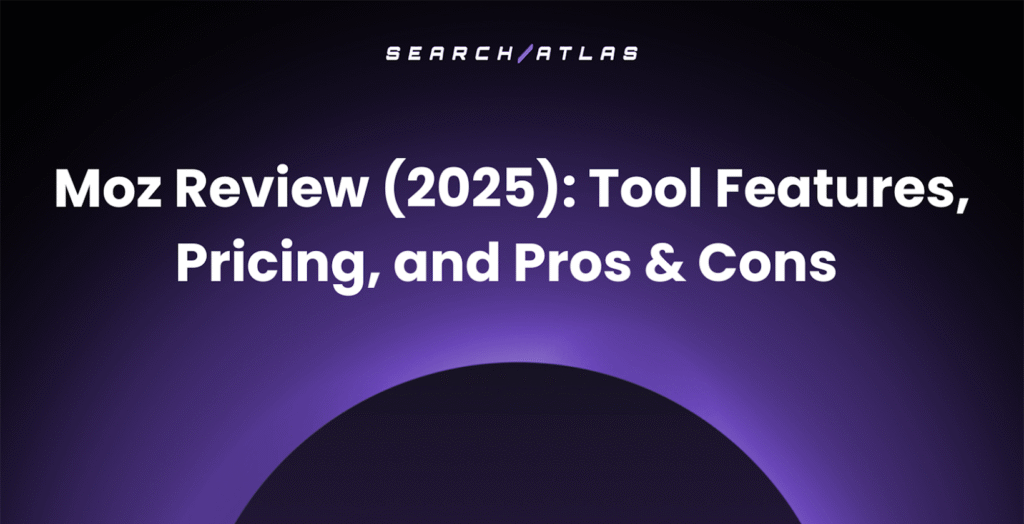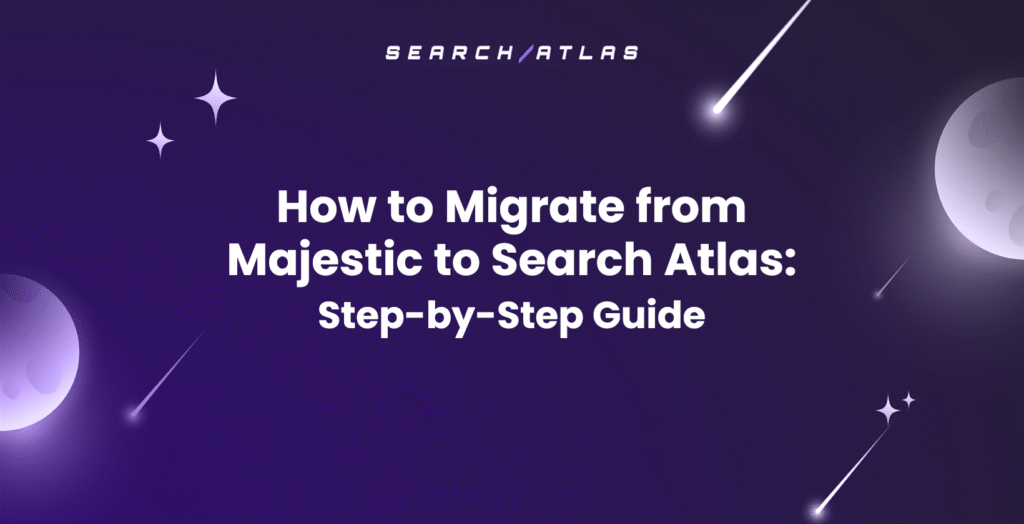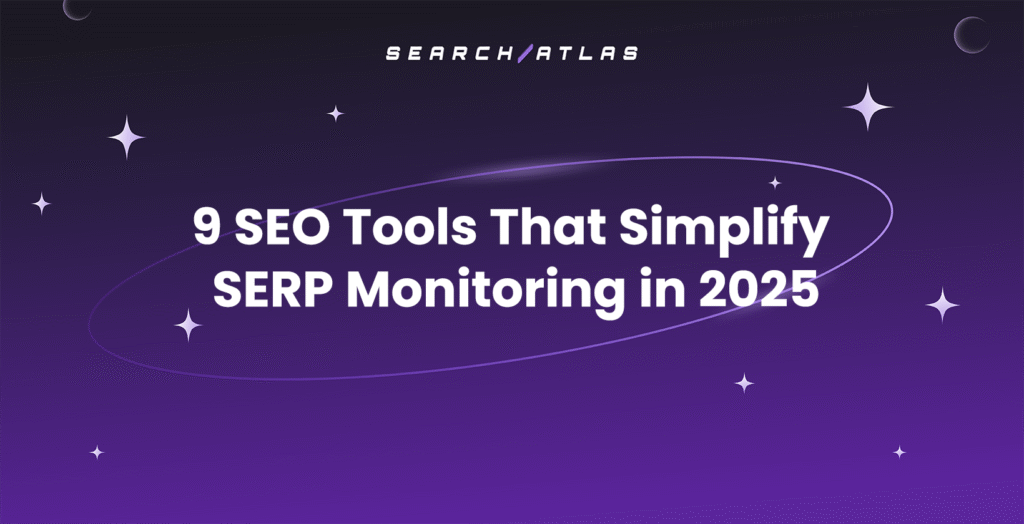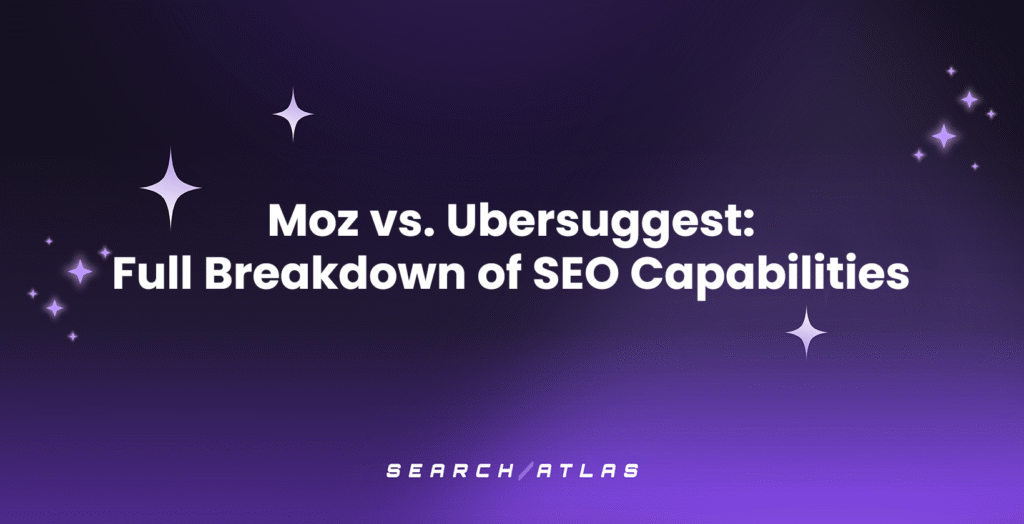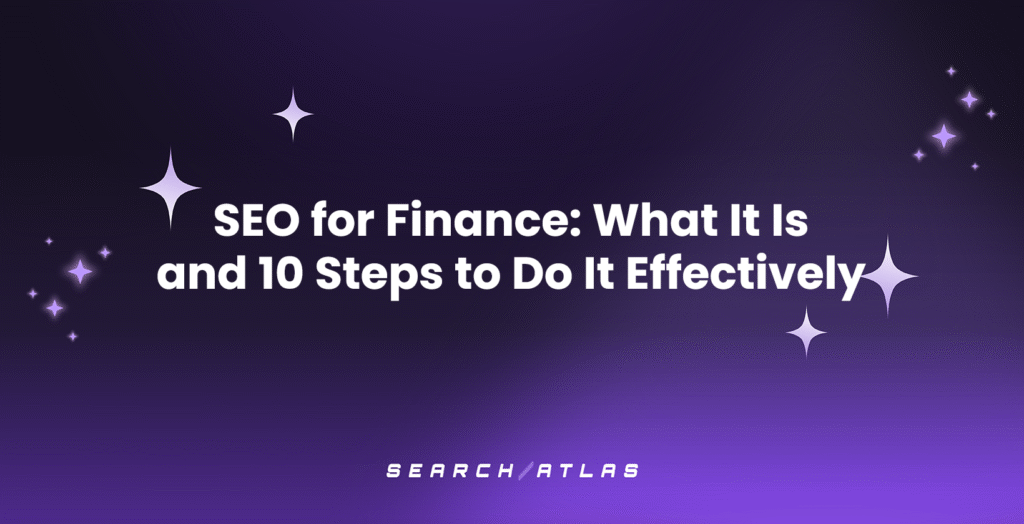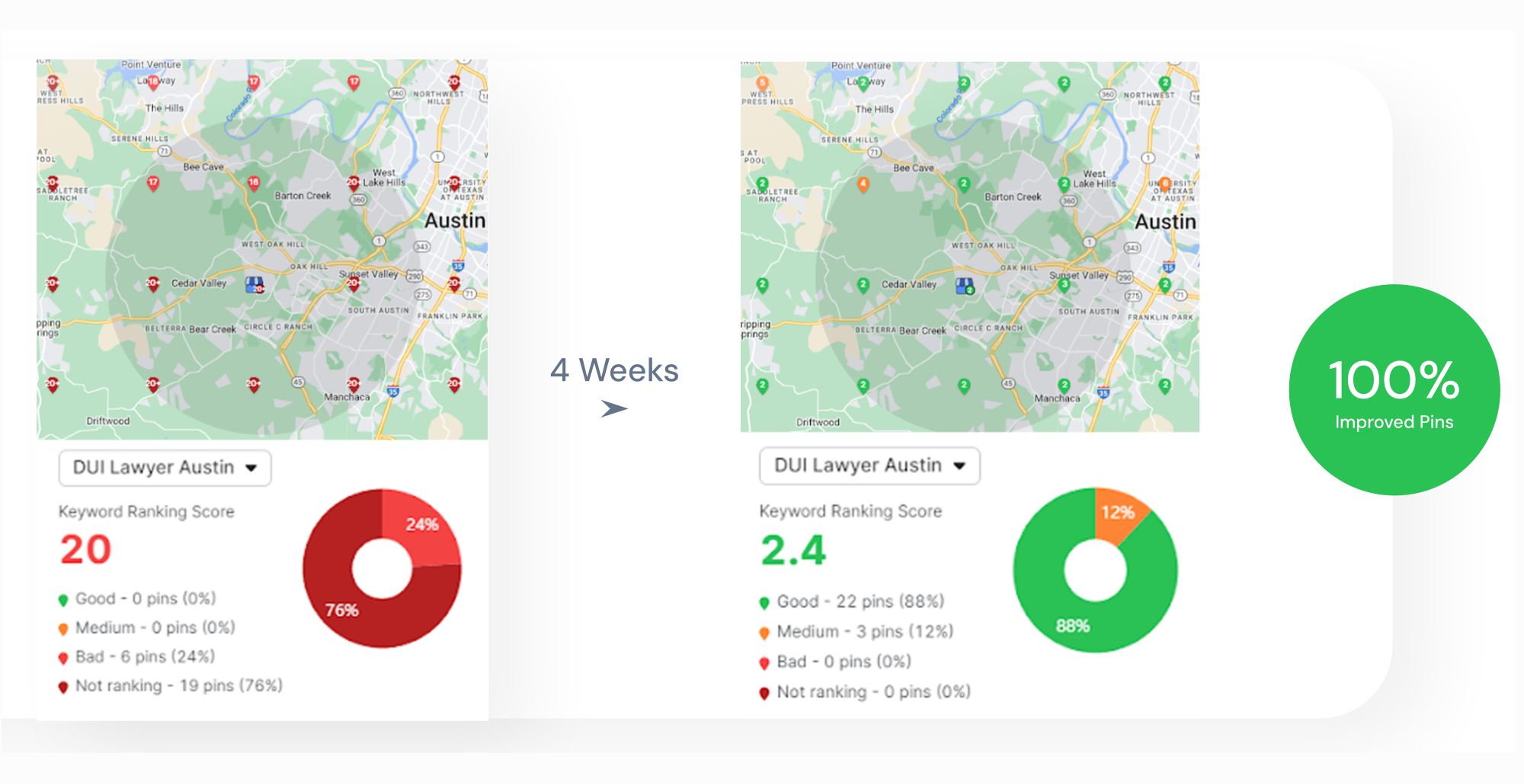If you’ve ever wondered how some content seems to effortlessly attract clicks, rank well, and speak directly to what people are searching for, keyword mining or research is often behind it.
This strategy helps you uncover terms your audience is already typing into search engines, Amazon, YouTube, and more.
Whether you’re in SEO, running ads, or crafting content, you must learn how to research keywords and use the right tools.
Ready to learn how? You’re in the right place to start. 🚀
What Is Keyword Mining?
Keyword mining or research is the process of discovering, refining, and organizing keywords that people actually use when searching online.
Unlike basic keyword research, which might focus on a few broad terms, keyword mining digs deeper, uncovering long-tail phrases, related queries, and niche-specific search patterns. It helps marketers, advertisers, and content creators align their strategy with real user intent, giving their pages a better chance to rank, convert, and resonate.
However, in most cases, you will find the terms are interchangeable, and the term keyword research is much more common.

Basic Terms and Concepts
- Seed Keyword: A starting keyword used to generate more ideas (e.g., “running shoes”).
- Search Volume: The number of times a keyword is searched per month.
- Long-Tail Keywords: More specific, often lower-volume phrases with higher conversion potential (e.g., “best summer dresses for petite women”).
- Keyword Difficulty (KD): A score that shows how competitive a keyword is to rank for.
- Search Intent: The purpose behind a query (informational, navigational, transactional).
- Autocomplete Data: Search suggestions from platforms like Google, Amazon, or YouTube.
- Related Searches: Additional keyword ideas pulled from what users typically search next.
- Click Potential: The likelihood that a keyword will lead to clicks when ranked.
- Keyword Clustering: Grouping related keywords together to target them in one piece of content.
- Negative Keywords: In pay-per-click advertising, terms you don’t want your ad to appear for.
When People Need Keyword Mining
Keyword mining is a valuable step anytime you’re planning content, launching ads, or optimizing for visibility across platforms. Here are the key scenarios where it makes a real impact.
SEO: For Smarter Content and Ranking Opportunities
In search engine optimization (SEO), keyword mining helps you identify what your audience is actually typing into search engines. Instead of just targeting “organic dog food,” mining can reveal deeper, intent-rich terms like “best organic dog food for small breeds” or “is organic dog food worth it.”
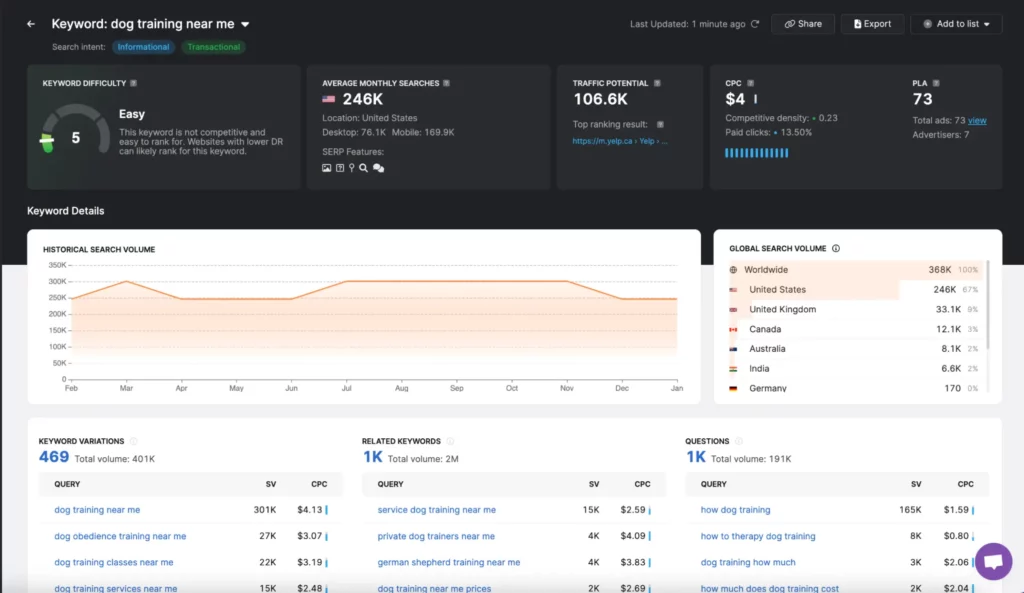
These long-tail keywords have lower competition and often attract more qualified visitors. You can also group related terms into content clusters to cover a topic more comprehensively, helping you build authority and improve rankings across multiple related queries. It’s not just about finding traffic; it’s about finding the right traffic.
PPC: For Lower Costs and Higher Conversions
PPC, or pay-per-click, advertising is basically running paid ads online. Here, every click costs money, so the quality of your keywords really matters.
With keyword research, you can go beyond obvious terms and find specific, buyer-intent phrases like “grain-free organic dog food coupons” or “organic dog food subscription delivery.” These keywords may have lower costs per click (CPCs) and better conversion potential.

You can also identify irrelevant searches to build out a list of negative keywords, for example, excluding terms like “DIY organic dog food recipes” if you’re only selling packaged products. This kind of targeting can stretch your budget further and improve your ROI.
Amazon: For Higher Product Visibility
Shoppers on Amazon search differently than they do on Google. Keyword research helps you uncover those platform-specific patterns.
Someone might not just search “organic dog food” on Amazon, but use terms like “organic dog food for puppies” or “USDA certified organic kibble.”
Mining tools can pull real Amazon search data to help you optimize your product listings, titles, and bullet points using terms that are most likely to trigger visibility in search results. These insights can also guide your backend keyword fields, increasing your chances of ranking in both high- and low-competition spots.
YouTube: For Better Discovery and Engagement
Even on a visual platform like YouTube, keyword mining plays a huge role in how people find your videos. 📺
You might start with a general topic like “organic dog food,” but keyword mining can help you tailor it to match actual viewer searches like “what’s the best organic dog food brand?” or “homemade vs store-bought organic dog food.”
Using these keywords in your title, description, and tags increases your video’s chances of being discovered in search or recommended in related content. It also helps you craft content that answers specific questions and meets the audience’s intent, which boosts watch time and engagement.
And different types of videos may need different keyword research strategies—for example, YouTube Shorts.
E-commerce and Shopify Stores
If you run your own online store, keyword mining helps you write better product titles, descriptions, and meta tags. Instead of only targeting broad terms like “organic dog food,” you might find gems like “affordable organic dog food for senior dogs” or “hypoallergenic organic dog food.”
These can help your store rank in Google and on internal site search.

Blogging and Content Creation
Bloggers can use keyword research to identify fresh angles, trending questions, or long-tail topics that haven’t been overdone. Instead of writing “Why organic dog food is good,” you could find a more specific and untapped topic like “organic dog food myths debunked by vets.”
You can also use keyword research to create content plans and make sure you cover your niche better than your competitors.
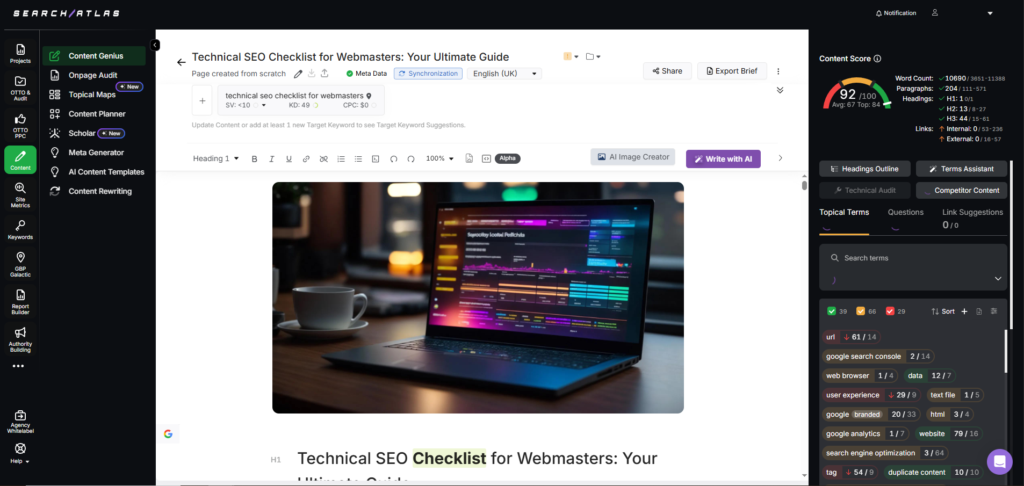
Voice Search and AI Assistants
People speak differently than they type. Keyword mining helps you surface more natural, conversational phrases that users might say to Alexa, Siri, or Google Assistant. These tend to be longer and more question-based.
In voice search, instead of typing “best organic dog food,” a user might ask, “What’s the healthiest organic dog food for allergies?” So when you research voice-style queries, you can optimize for featured snippets and voice results.
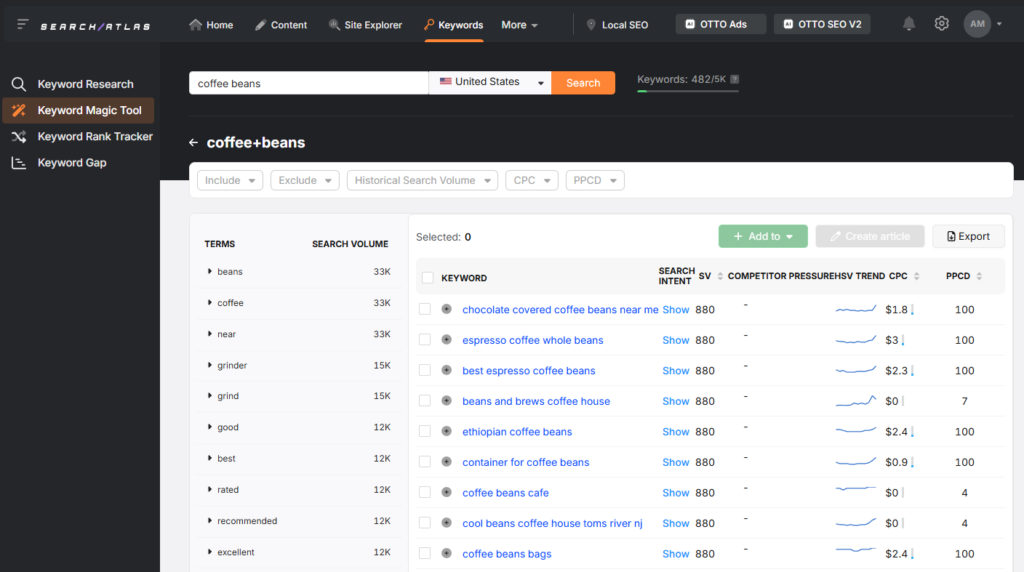
Competitor and Market Research
You can also mine keywords from your competitors’ content, ads, or listings to understand how they’re attracting traffic. This can help you spot gaps in their strategy or find terms you might’ve missed.
For instance, by analyzing a competitor’s organic dog food listings, you might notice they’re ranking for “vegan dog kibble” or “non-GMO puppy food,” giving you inspiration for new product descriptions or ad campaigns.
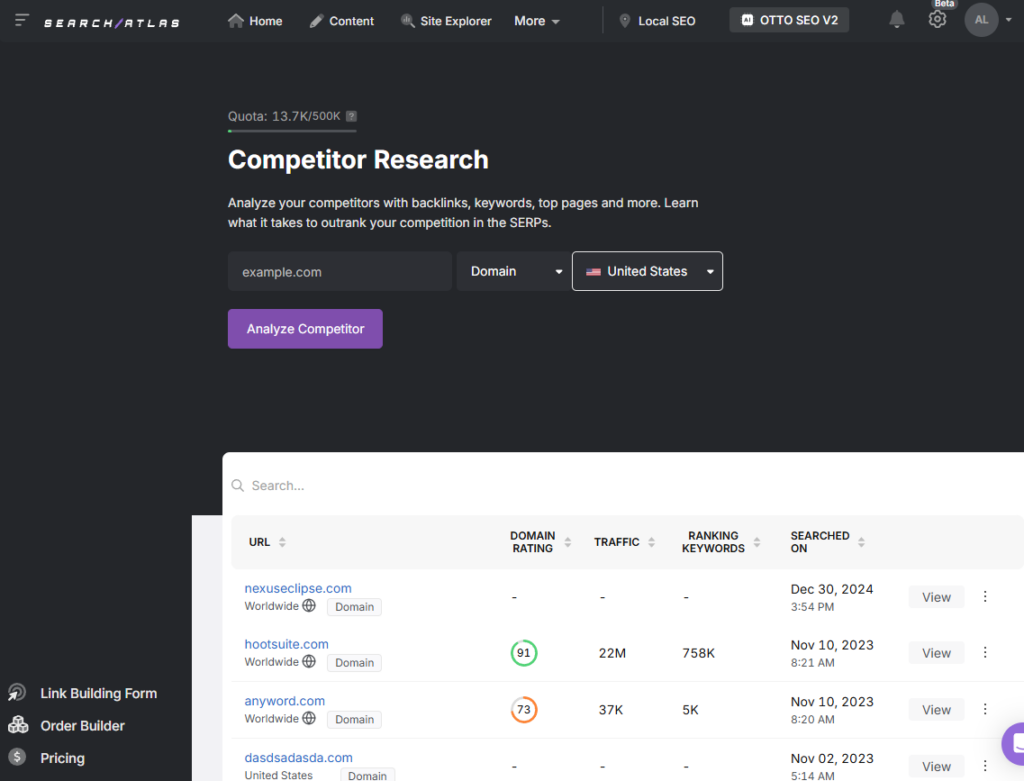
Email and Social Media Campaigns
Even outside search engines, keyword mining can help tailor your messaging to what your audience cares about. If people are searching for “organic dog food for picky eaters,” that phrase could inspire an email subject line, Instagram caption, or video hook.
How to Do Keyword Mining in 9 Steps
Keyword mining or research includes diving into search data, competitor analysis, and user behavior.
Here’s a step-by-step guide.
1. Start with Seed Keywords
Begin with a broad term related to your niche (e.g., “organic dog food”). This will be your foundation for expanding into more specific, long-tail keywords.
2. Use Keyword Tools
Leverage keyword research tools like Google Keyword Planner or Search Atlas to find related terms, search volume, and competition levels. These tools often offer keyword suggestions and filters to help you dig deeper.
The process typically looks like this, with lists and metrics like keyword difficulty, cost-per-click, and search volume.
You can also specify a location to see what people in different places are looking for.
3. Explore Autocomplete and Related Searches
Go to search engines like Google and platforms like Amazon or YouTube. Type in your seed keywords and note down autocomplete suggestions. These reflect what people are actively searching for and often include long-tail keywords that can be valuable.
4. Analyze Competitors
Look at the keywords your competitors are ranking for. Tools like Keyword Gap offer competitor analysis features, allowing you to spot keyword opportunities that you might have missed.
5. Focus on Search Intent
Pay attention to search intent.
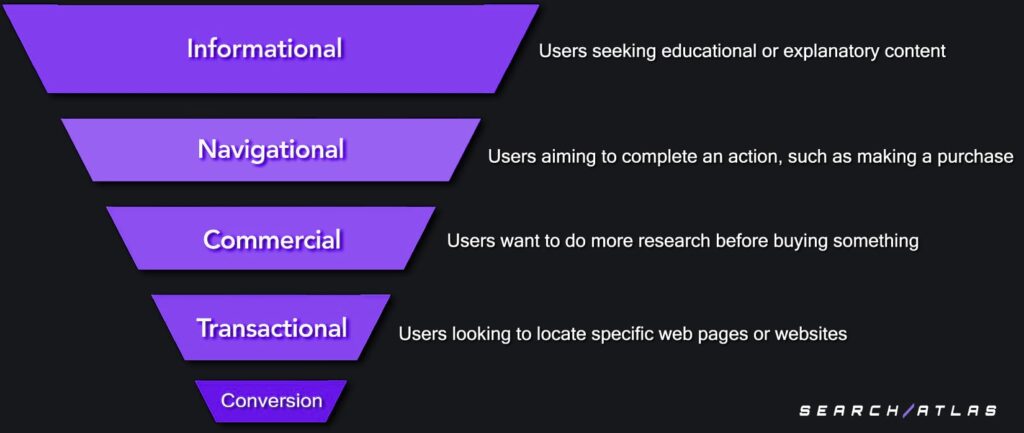
Are people looking for information, making a purchase, or searching for a specific solution? Understanding intent will help you target keywords that align with user goals and drive the right kind of traffic.
6. Refine and Categorize Your Keywords
Organize your keywords into categories, such as primary keywords, long-tail keywords, and question-based queries. Grouping them will help you plan your content strategy and avoid keyword cannibalization.
7. Check Keyword Difficulty and Click Potential
Evaluate each keyword’s difficulty level using metrics like KD and click-through rates (CTRs). Opt for a mix of highly competitive and lower-competition keywords to balance your chances of ranking.
8. Test and Iterate
Keyword mining is an ongoing process. After implementing your selected keywords, track performance, and refine your strategy based on data. Experiment with new phrases and see which ones resonate best with your audience.
Ready to get your hands dirty and start mining? 🛠️
9. Use AI to Beat Your Competitors
Some AI tools can now not only do your keyword research for you, but also help you optimize better than your competitors. For example, they can:
- Make sure you’re not keyword stuffing.
- Ensure you’re adding keywords to the right places.
- Do complete Google Ads keyword research.
- Find missing keywords across your website.
We created unique AI agents that can do all of this and much more, making sure SEO and PPC are much easier and available even to beginners.
Keyword Mining for Any Purpose: Powered by AI
By understanding what people are searching for and aligning your strategies with their intent, you can connect with your audience more effectively and boost your visibility. It’s all about finding the right keywords that can drive the right results.
But let’s face it: Manually sifting through data can be time-consuming. That’s where automation comes in. Tools like Search Atlas make keyword mining easier and faster, so you can focus on the big picture while the tech handles the heavy lifting.
Ready to start mining smarter?
Sign up for a 7-day free trial, no commitment required—you can cancel anytime, no questions asked.


